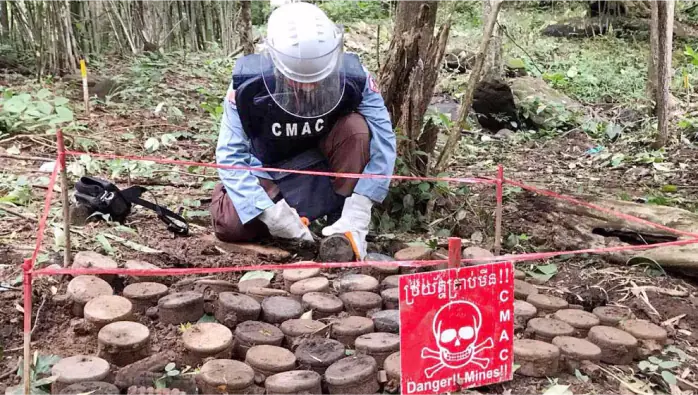In Cambodia, where landmines and unexploded ordnance (UXO) remain a threat, the Anti-Personnel Mine Ban Treaty plays a crucial role in mitigating the devastating impact of landmines left from the civil war, contributing to the nation’s recovery and the creation of a safe living environment. Since the treaty’s adoption in 1997, Cambodia has actively promoted mine clearance efforts and provided support for victims. The Convention on Cluster Munitions offers a vital framework to reduce the harm caused by cluster munitions used within the country, serving as a foundation for ensuring public safety and sustainable development. These treaties help clearance of threats, support victims, and prevent future harm, contributing to a safer environment for communities affected by decades of conflict.

The 1997 Convention on the Prohibition of the Use, Stockpiling, Production and Transfer or Anti-Personnel Mines and on their Destruction is the international agreement that bans antipersonnel landmines. It is usually referred to as the Ottawa Convention or the Mine Ban Treaty.

The Convention was opened for signature in Oslo on 3 December 2008 and entered into force on 1 August 2010. It prohibits under any circumstances the use, development, production, acquisition, stockpiling and transfer of cluster munitions, as well as the assistance or encouragement of anyone to engage in prohibited activities.